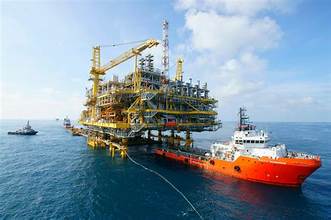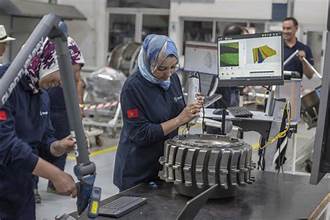Source: AFRICAN BUSINESS
Angola’s departure is in line with its independent foreign policy
Angola, the second largest producer of oil in Africa, announced its intention to leave the OPEC cartel in December, in a move that highlights the fraught relationship between African oil exporters and their larger rivals.
OPEC, which is currently chaired by Saudi Arabia, has been committed to lower oil production since last year in a bid to prop up the Brent Crude benchmark price amid falling prices. However, in June 2023, Angola walked out of an OPEC meeting following Saudi-led attempts to lower Angola’s oil quota.
A compromise was eventually agreed that saw Angola, Nigeria, and the Republic of Congo have their production targets reviewed by an independent third party, but that review still saw all three of the African countries have their 2024 targets lowered.
Angola was particularly aggrieved given the quota for the much wealthier United Arab Emirates (UAE) was increased, despite OPEC’s insistence on the need to cut oil production, and has decided to walk away from the cartel.
“We feel that at this moment Angola gains nothing by remaining in the organization and, in defense of its interests, it decided to leave,” mineral resources and petroleum minister Diamantino Azevedo (pictured) said.
“If we remained in Opec… Angola would be forced to cut production, and this goes against our policy of avoiding decline and respecting contracts.”
Not a tilt to the West
Alex Vines, who leads Chatham House’s Africa Programme in London, tells African Business that “since last June, there has been a feeling by Luanda and Abuja that African voices were not being sufficiently listened to about quotas… this contributed to Angola’s decision to leave.”
Vines adds, however, that “this departure was a year in the making and fits into [President] João Lourenço’s foreign policy vision.”
Vines says that since becoming president in September 2017 Lourenço has sought to pursue an “Angola First foreign policy” and maintain independence from international organizations such as OPEC.
Some have suggested that Lourenço’s decision to leave a bloc dominated by the Gulf states and Moscow could be indicative of a pro-Western shift. This is particularly in light of a visit to the White House last year, which saw Lourenço praise President Joe Biden’s Africa strategy and express his interest in forging stronger economic and defense ties with the United States.
However, Vines rejects this view and believes that Luanda is determined not to be “pigeonholed” by international organizations or geopolitical blocs.
“Angola’s leaders learned this from bitter experience in the Cold War in the late 1980s, by being overdependent on a weakening Soviet Union, and in recent years by becoming overexposed to China,” Vines notes.
The decision to leave OPEC is, in his view, “more a statement of Angola’s desire to become fully non-aligned, with the independence to freely choose its business partners and markets”.
Ariel Cohen, managing director of the energy, growth, and security program at the International Tax and Investment Center in Washington DC, says that “Angola’s rejection of OPEC and its push for more economic sovereignty should not be misconstrued as a pro-Western shift.”
“Angola’s largest purchaser and the biggest beneficiary of more Angolan production is China, which consumes nineteen times more Angolan oil than the US,” Cohen says.
“The governing Movement for the Popular Liberation of Angola (MPLA) remains in power after a contentious 2022 election and retains ties with China, and this move to leave OPEC, with its emphasis on sovereignty and nationalism, is only going to reinforce the government’s popularity.”
While Angola’s dramatic departure from OPEC is wrapped up in Lourenço’s specific style of foreign policy, what does this say about the wider state of Africa-OPEC relations?
Cohen tells African Business that OPEC has “alienated” Angola and other African countries in recent years.
“The transformation of OPEC into a tool for Iranian and Venezuelan high-price extremists, and Russia and Saudi Arabia’s geopolitical maneuvering, alienated many OPEC members, Angola among them,” Cohen says. “Concurrent with domestic problems in Angola, and amidst international turmoil, especially food and fertilizer security due to the war in Ukraine, Angolan oil production slumped due to OPEC quotas – it’s little surprise that they departed.”
Cohen believes that OPEC has become increasingly less economically and strategically useful for African oil exporters. While Riyadh- and Moscow-led attempts to elevate global oil prices by limiting supply were largely helpful when Africa’s production capacities were more limited, Angola and others now have better infrastructure in place to ramp up oil production and boost exports.
“This situation is not Angola-specific – when oil production in much of Sub-Saharan Africa was limited, or further expansion was not financially plausible, OPEC was desirable,” Cohen explains.
“Now, with African states more than willing to expand production, feed growing demand, and, in doing so, accrue significant profit, Africa’s incentives are further diverging from the Saudi-Russian-led OPEC.”
The battle over global institutions
Luanda’s decision to quit OPEC comes at a time when many African countries are battling for greater power and influence in global institutions that they believe do not properly reflect African interests. Lourenço has previously called for reform and expansion of the UN Security Council, for example, while the recent inclusion of the African Union (AU) in the G20 highlighted the continent’s efforts to take its seat at the global table.
Cohen argues that OPEC is another international organization with which African countries are assessing their relationship, although he believes that the oil cartel is more resistant to reform than other global bodies.
“If OPEC had been more willing to accommodate African concerns, Angola would not have departed,” he says. “While institutions like the International Monetary Fund (IMF) and the World Bank have tried to accommodate African concerns with reforms of structural adjustment packages, OPEC has quite transparently coerced and cajoled African states into compliance with its global agenda.”
In the short term, Angola’s departure is unlikely to cause OPEC too many problems. While Brent Crude prices fell on the news of Luanda’s exit, with traders expecting Angolan oil firms to ramp up production and add to global supply, the country’s ability to influence global prices more profoundly is highly limited. After all, Angola only produces around 1.2m barrels of oil a day, which is about 2% of OPEC’s total output.
Nor are there any signs at this stage of a mass African exodus from the bloc.
“Other African members of OPEC – Algeria, Congo, Equatorial Guinea, Gabon, Libya, and Nigeria – do not look like they are currently planning to exit the cartel,” Vines says.
However, in the longer term, Cohen believes that this could represent a significant blow to OPEC’s authority, particularly in the context of Africa’s broader desire to rework international organizations and governance structures.
“Angola is still a midsize producer, and OPEC maintains a dominant share of the world’s oil production,” he says. “Thus, Angola’s departure is less significant for the oil market and prices in the immediate future than what this demonstrative exit will do to the power and prestige of OPEC as an organization.”
Whether more African countries will follow Luanda’s lead, however, depends on how well the country manages its reclaimed sovereignty over oil production.
“If Angola succeeds and manages increased oil revenues well, it will set a powerful precedent,” Cohen says. “If it bungles its financial management, or commodity prices collapse, it will prove that Luanda’s bid for independence failed.”
THE AUTHOR: Harry Clynch




